Today I was in the Parliament Building in Westminister,invited to give testimony about potential post-Brexit customs and border solutions to the House Of Lords EU External Affairs Sub-Committee.
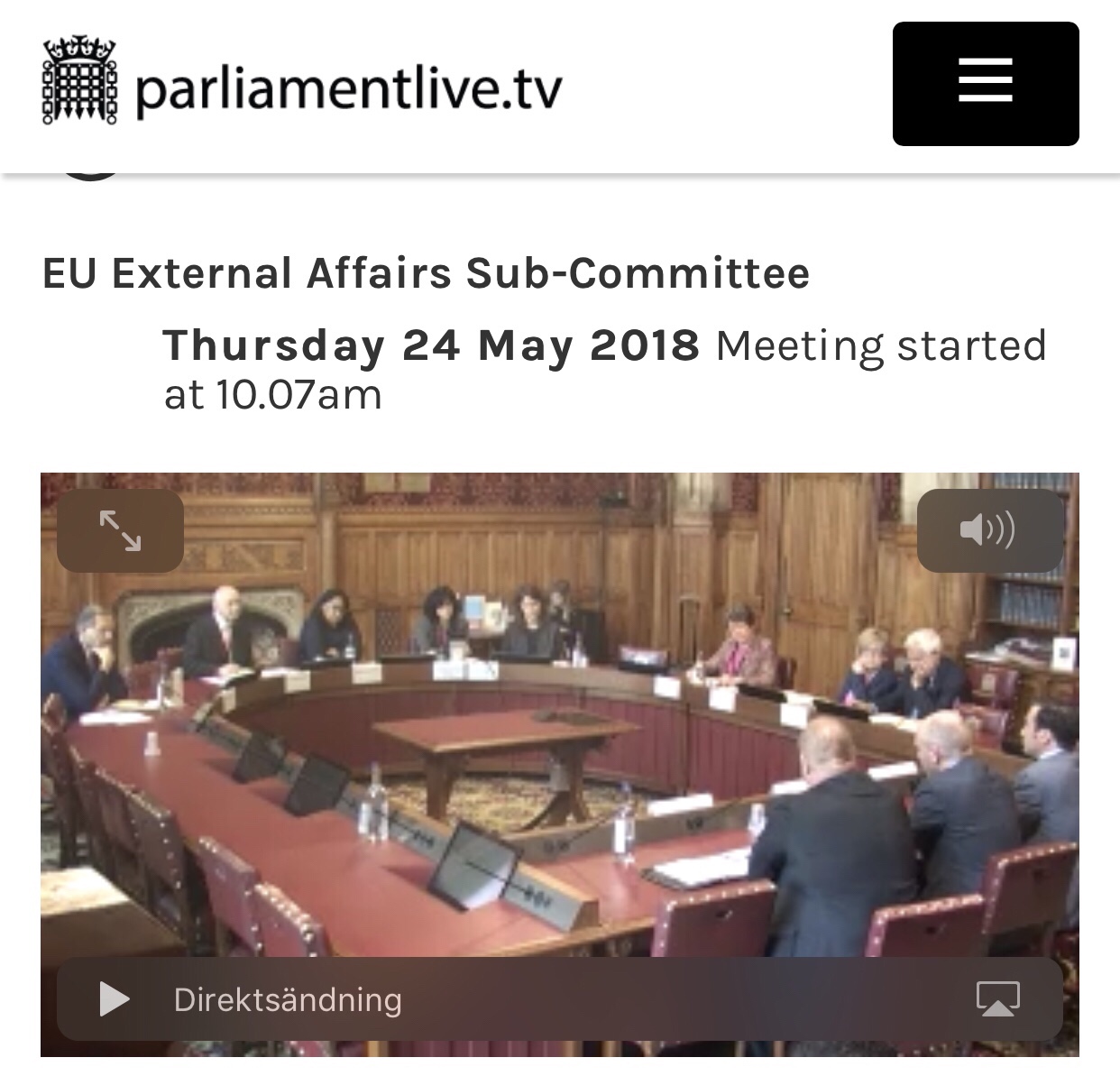 The hearing was broadcasted by Parliamentlive.tv
The hearing was broadcasted by Parliamentlive.tv
It was an interesting hearing with good discussions and relevant questions from the Commiittee Members from the House of Lords. All documented in public.
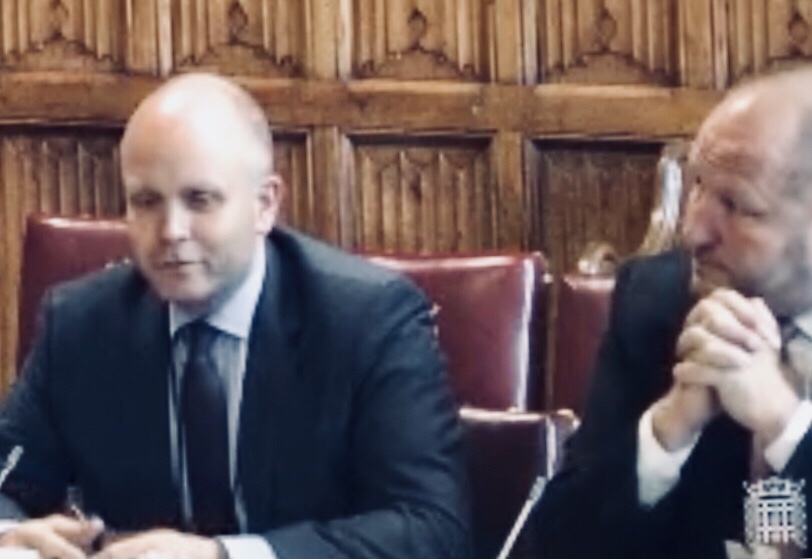 Here with fellow panelist Stephen Adams.
Here with fellow panelist Stephen Adams.
The work on Customs, Border and Trade solutions is very much in the center of the Brexit negotiations right now.
There is now also a discusion about the entire scope of the border issue, includkng all borders whichbis good. In addition it is not only the revenue related matters that are on the table but also a necessary debate on other border procedures related to non-tariff barriers.
We know from international studies that non-tariff barriers in most cases are more expensive for traders than the duties and taxes involved in international trade. This needs to be solved for all options presently discussed.
Finally – a message for media
To media, I want to say the following. I will not give any comments on my testimony to the House of Lords.
After the presentation to the European Parliament, in November 2017, I did approximately fifty interviews for media.
I have during the last two months recieved more than one hundred additional requests for interviews, TV programmes, radio or to make comments. This is flattering and I am grateful for the interest. I thank you for contacting me.
However, after my testimony to the House of Commons, Exiting the European Union Committee in March – I decided not to do more media interviews.
What I had to say regarding my SmartBorder 2.0 report, and proposals in it, is available in the public domain.
I am always willing to support stakeholders involved in the search for good solutions in the field I have worked in the last 35 years, but I will not enter the political debate. Others do this better.
I am a technical expert and I will – if asked – continue to give advice to those involved in the development of the post-Brexit environment. The advice will be given directly to those concerned.
Thank you for your understanding.
Gerald Chirinda has on the Wirld Economic Forum blog written an interesting article about empiwerment of African women. Here it is:
“Women have long suffered stigmatization and marginalization globally. The number of women who still face challenges in reaching their full potential due to an uneven playing field is too high. Even still, I am encouraged by the women who have remained resilient in the face of adversity and committed to achieving their calling and purpose in life.
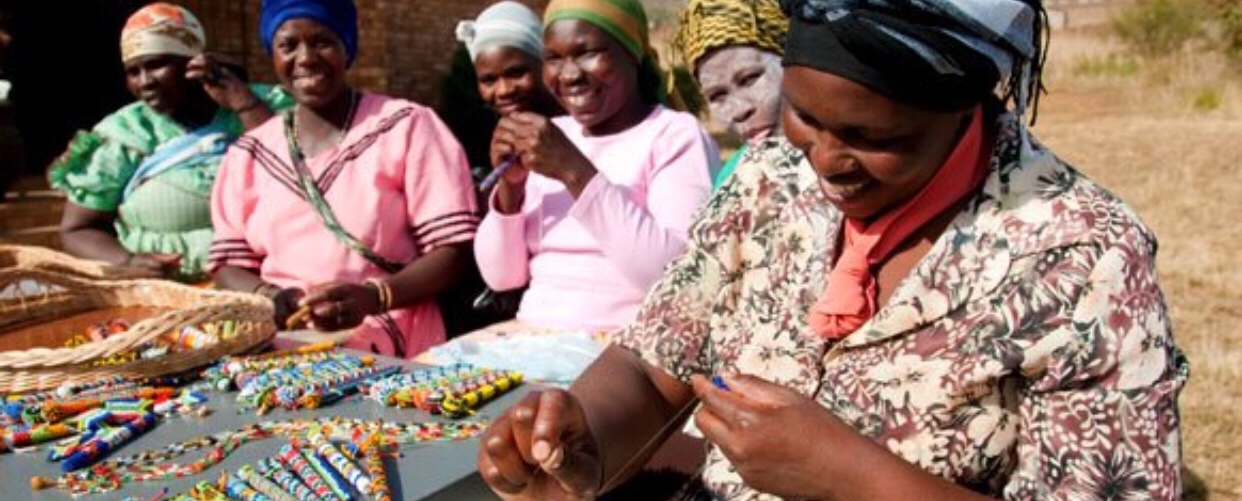
In a previous article, I wrote about the big questions for Africa’s next three decades, and it would be disingenuous to continue along this path without celebrating women and the extremely important role that they play on our continent. In December 2017, I had the privilege of participating in a meeting at Wilton Park on Taking Forward the Women’s Economic Empowerment Agenda, which brought together a diverse group of approximately 60 participants from 26 countries representing government, civil society and the private sector. This gathering gave me an opportunity to not only learn, but also un-learn some adverse norms and perceptions. Having been fortunate to grow up in Zimbabwe, in an era where women have been to a certain extent empowered, I have seen the positive results that empowerment brings.
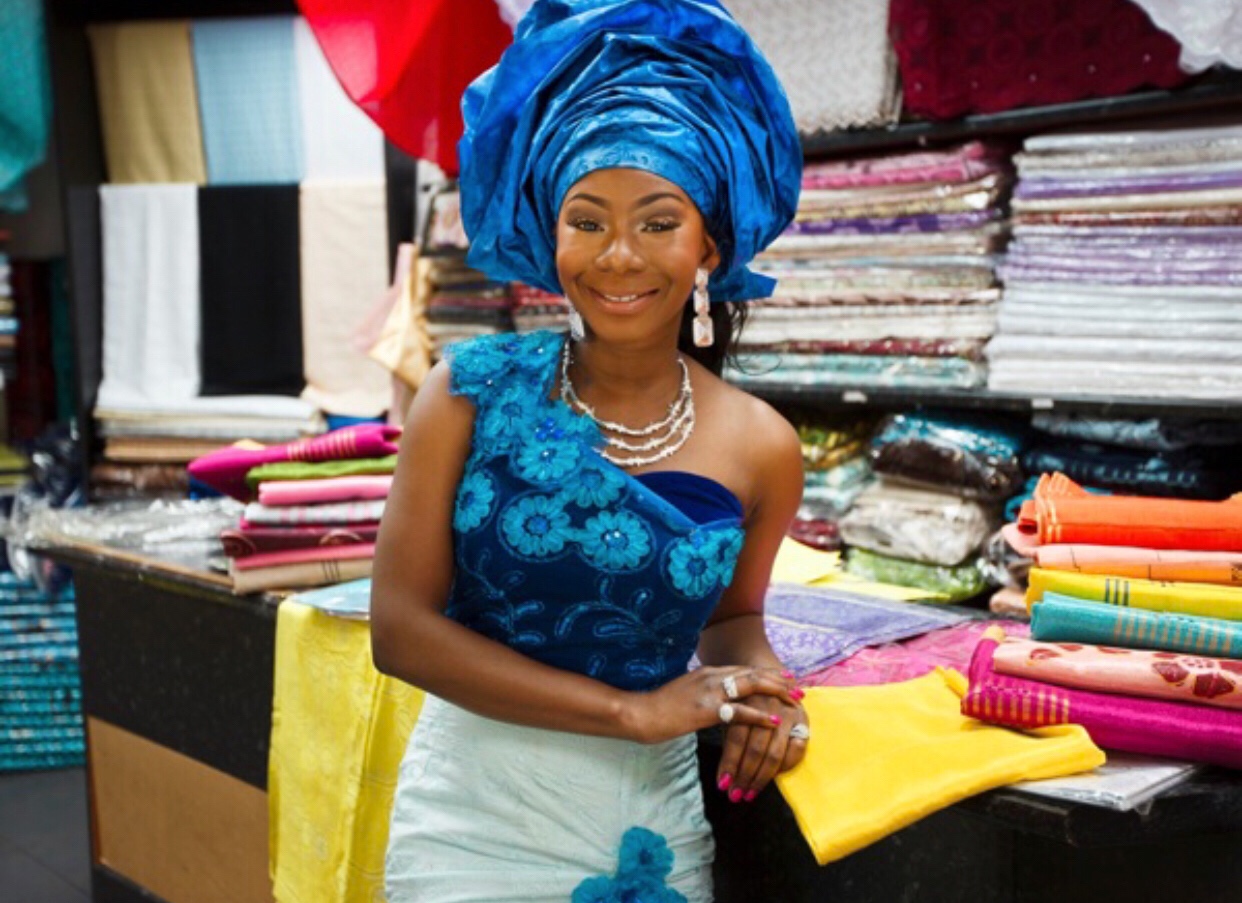
Why women’s economic empowerment is important
I ask myself, what the world would look like if more women were empowered. In my research I was encouraged to learn that the highest share of women in the workforce globally are found in Africa, Zimbabwe being the highest with 52.8% and a Sub-Saharan average of 40%. However, women across the continent are more likely to be in informal employment relative to men. In the private sector, African women hold 23% of positions at executive committee level compared to a global average of 20 percent. At CEO level that number drops to 5 percent compared to a global average of 4 percent. Based on these statistics, it’s clear that the world has a long way to go when it comes to unlocking the gender dividend through the economic empowerment of women.
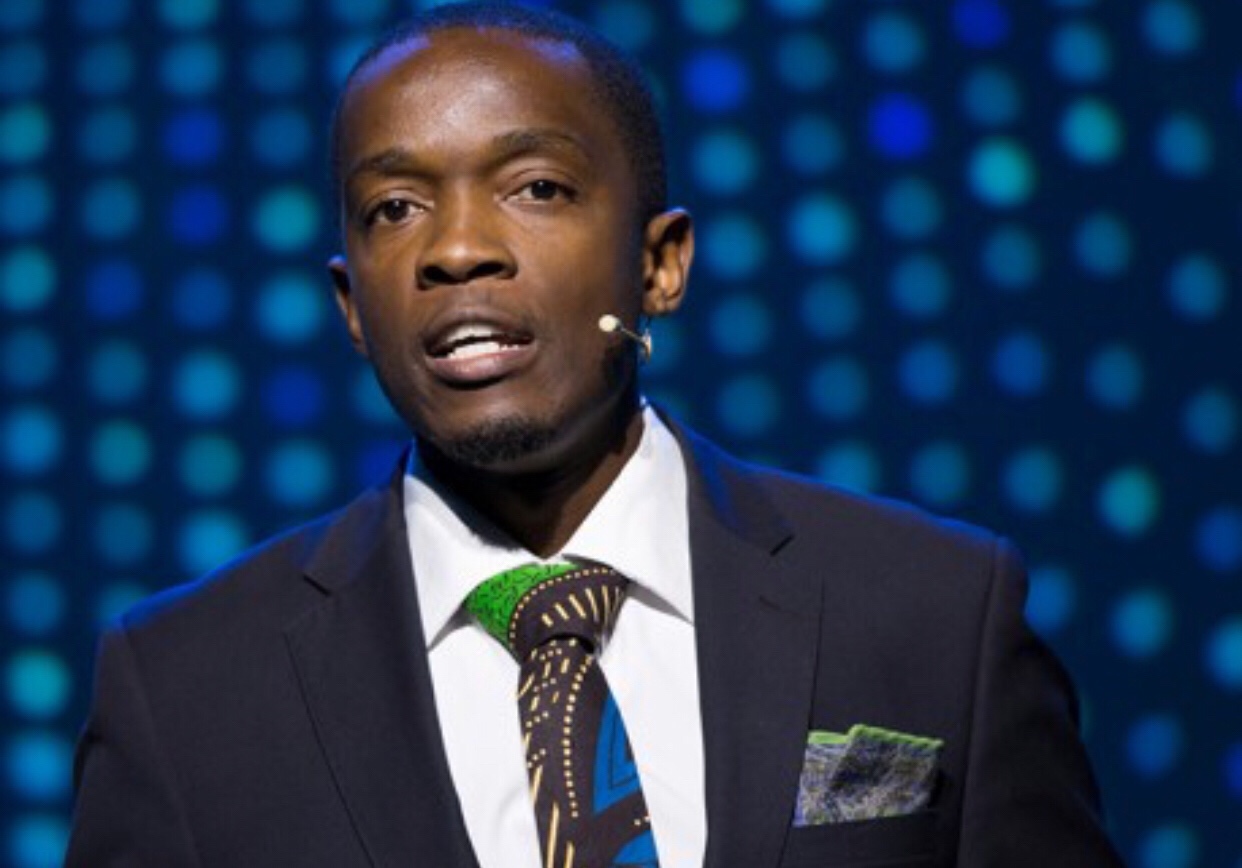 Author: Gerald Chirinda
Author: Gerald Chirinda
Obstacles to women obtaining economic power
Regardless of the nature of employment (formal or informal), this issue needs to be addressed. An enabling environment has to be created at every level of society, starting within households. The home is where attitudes, ideas, values and beliefs are shaped and it is important that parents and guardians instill the right values and beliefs, as they work as enablers and catalysts for their children’s success. A child’s formative years are when cultures and norms are molded. It is important for parents to invest their time and be intentional in positively influencing and encouraging their daughters. It is equally important to teach boys the importance of respecting, honoring and empowering women. A study conducted by Legatum Institute shows that parenting courses are useful for embedding skills and values, however their impact is not being seen at scale due to two reasons – take up is limited and courses are limited in duration.
1). Limited take up is due to:
· Stigma: the politicization of parenting courses has often led the public to associate them with ‘troubled families’ and ‘poor parenting’
· Accessibility: courses should be delivered locally, with childcare provision, and in the evening after work
· Familiarity: parents needed to feel comfortable with the venue of the courses (schools, children’s centre, local church) and with the trainer or facilitators
2. Limited duration is due to:
· Cost: budget cuts have meant many local authorities are cutting back on even low-cost courses. Training is expensive for small charities or private enterprises
· Priority: while some local authorities prioritise parenting, some do not
· Format: due the the format of some of the courses, they become expensive to deliver”
Source: WEF, author Gerald Chirinda
Sweden defended our title in Icehockey World Cup winning the final against Switzerland 3-2 after a penalty shoot out.
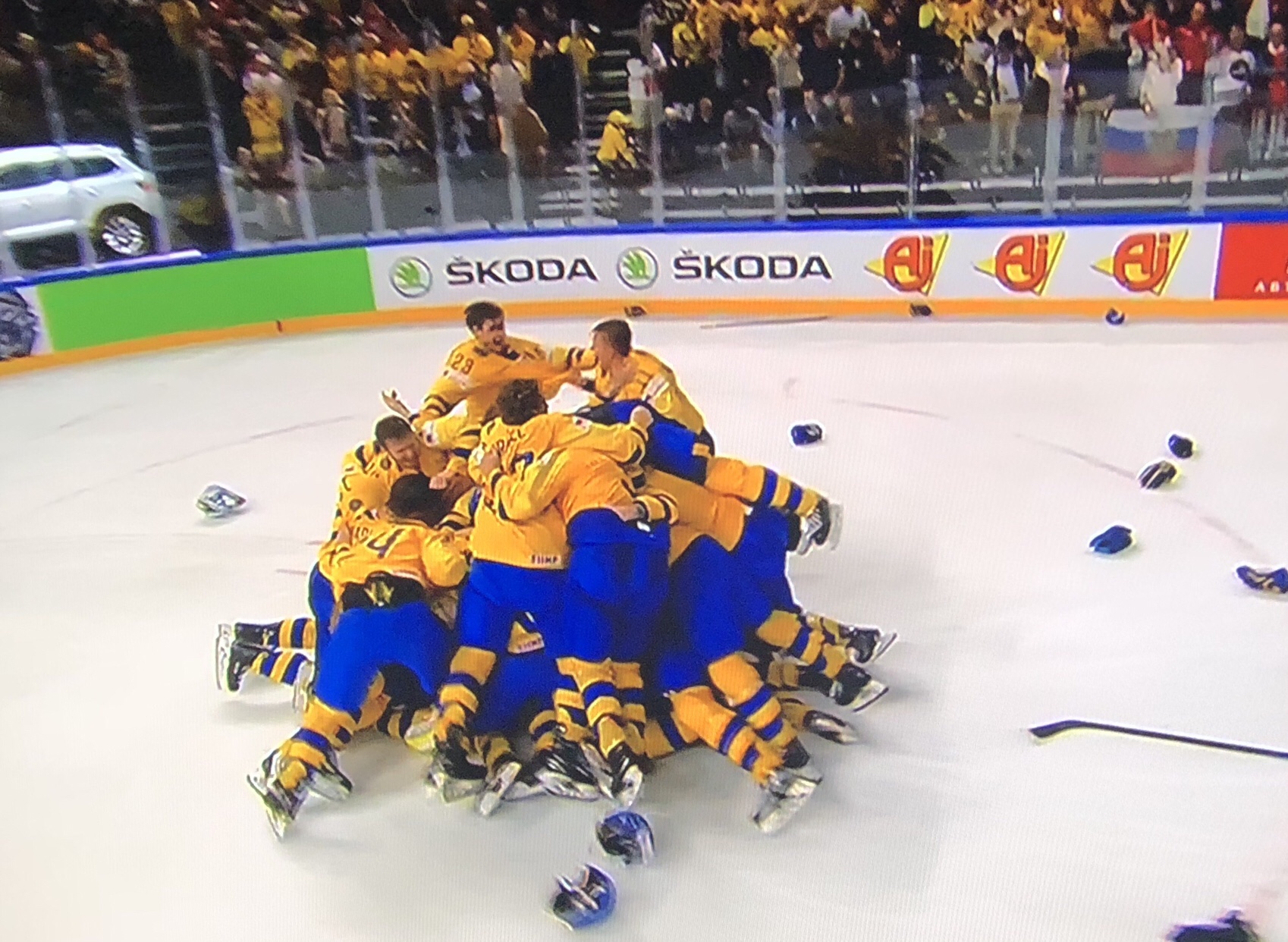 Sweden won all games in the tournament and became world champions for the eleventh time.
Sweden won all games in the tournament and became world champions for the eleventh time.
 The Swedish goal keeper Anders Nilsson was the hero of the final game saving four of Switzerlands penalities.
The Swedish goal keeper Anders Nilsson was the hero of the final game saving four of Switzerlands penalities.
The Swedish coach Richard Grönborg, here after winning the final, did avgreat job with the team. We had four out of six players in the All-Star-Team of the tournament.
We had a number of great NHL players on this team, like Filip Forsberg, Viktor Arvidsson, Patrik Hörnlund and Oliver Ekman-Larsson.
Great win for Sweden. The Three Crownes are champions for the second year in a row.
USA won the bronze medals after beating Canada.






You must be logged in to post a comment.